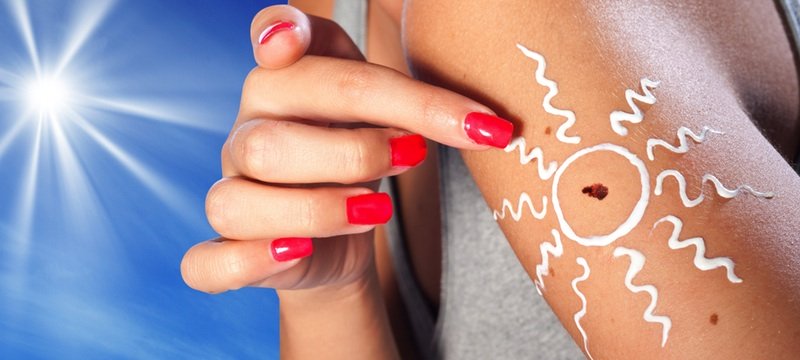Skin is the largest organ in your body. It covers your entire body. Your skin is the look you present to the world. Every bit of choices you make affect your skin. The foods and drinks you consume, the environment you are in and how you respond to daily stress and problems, affect your skin. Thus, it is very important to take care of your skin.
Skin cancer is one of the most common of all cancers. Most people that have skin cancer get conscious of their physical appearance. Their self-esteem is affected. They get depressed and worried. To gather more information about skin cancer and get some preventive measures, read these facts:
1.
Too much exposure from ultraviolet rays or sunbeds causes skin cancer.
2.
Every hour, one person dies from melanoma. 8,000 people from United States die of non-melanoma cancer.
3.
The risk of skin cancer is higher on white people.
4.
There are three main kinds of cancer: basal cell carcinoma, squamous cell carcinoma, and malignant melanoma.
5.
In 2007, 13 million white non-Hispanics, in United States, were diagnosed with basal cell carcinoma.
6.
Skin cancer symptoms include wounds that never heal, skin ulcer, skin discoloration, and changes of existing moles.
7.
Ultraviolet radiation from the sun is the main agent of skin cancer but others factors also contribute to skin cancer, such as tobacco smoking, HPV infection, ionizing radiation, and the use of immunosuppressive medication.
8.
Surgical excision is the most common form of skin cancer treatment.
9.
Most of the Americans at the age of 65 will likely have basal cell carcinoma or squamous cell carcinoma.
10.
Melanoma is the most common form of cancer for young people between 25 to 29 years old.
11.
The blistering sunburn from childhood will increase the chance of developing melanoma cancer later in life.
12.
Women get melanoma more than men. This type of cancer occurs between the age of 40 to 60 years old.
13.
Women mostly get the melanoma cancer on their legs while men get it on the trunk, particularly at the back.
14.
Basal cell carcinoma usually develop on sun-exposed areas such as the head and neck. It is a slow-growing form of cancer but when it is left untreated, it can spread to nearby areas and invade the bones and tissues under the skin.
15.
People with high number of moles, with red hair, blue eyes, fair skin and freckles, who tan too much and burn in the sun, are at their greater risk to acquire melanoma cancer.
16.
Sunscreen is one of the best recommendation to avoid skin cancer. Other advice include avoid sunburning, wearing protective clothing, sun glasses and hats.
17.
1 in 50 Americans will develop melanoma in their lifetime. It is the fastest growing cancer in the U.S. and worldwide.
18.
If detected early, melanoma cancer is treatable but immediate action is required since it spreads quickly.
16.
The UV rays from sunbeds are bad for your skin. They penetrate deep to your skin and destroy the skin fibers and its elasticity.
17.
Skin cancer develops on sun-exposed areas such as scalp, face, lips, ears, neck, lips, chest and arms.
18.
Basal cell carcinoma appear as flat, brown scar-like lesion while squamous cell carcinoma appears as flat lesion with a scaly, crusted surface.
19.
In 2010, there were 80,000 results of death from skin cancer, 49,000 deaths from melanoma and 31,000 deaths from non-melanoma cancers.
20.
Though naturally dark people have lower risks of skin cancer than fair-skinned people, that does not mean that they are immune to skin cancers.
21.
The moles you thought were just a part when you were born could mean something serious and a possible early form of skin cancer. Since only physicians can determine if a certain area of your skin is cancerous, it is best to visit a dermatologist.
22.
The sun’s intensity on winter might be low but the snow reflects the damaging rays of the sun that may cause sunburn or skin damage.
